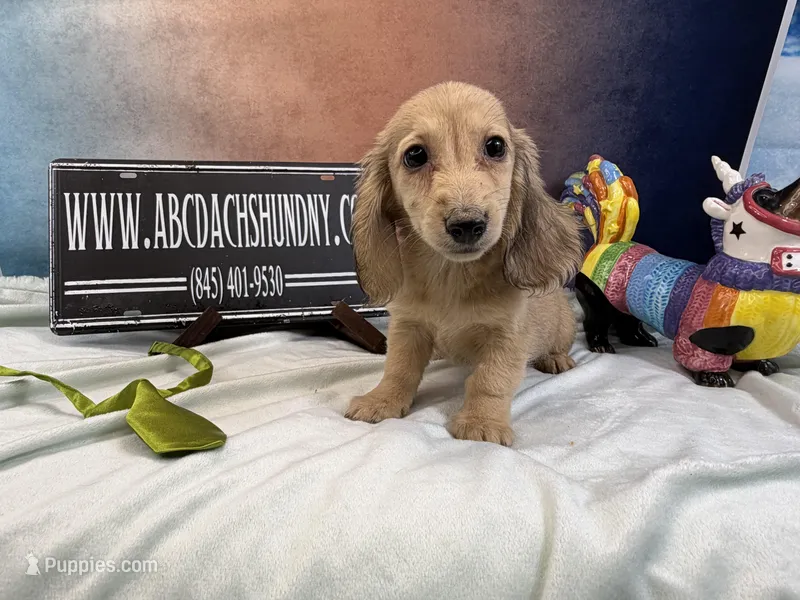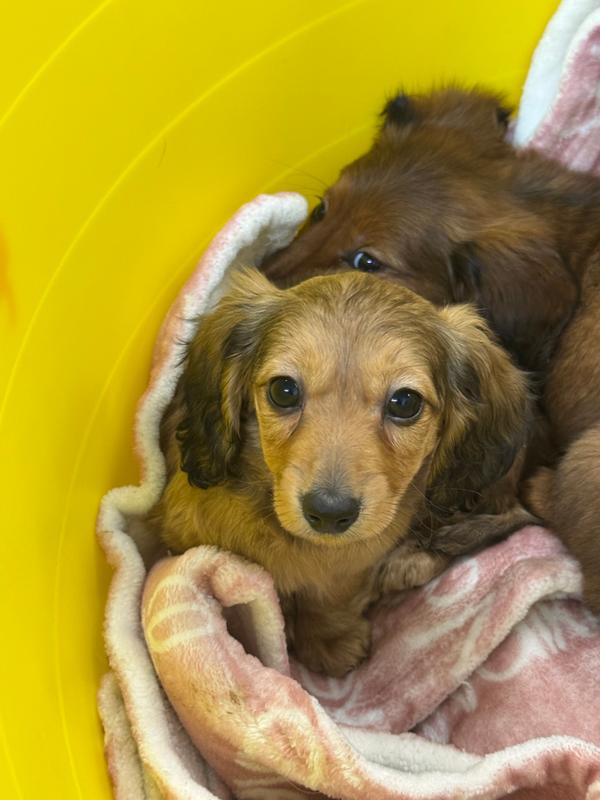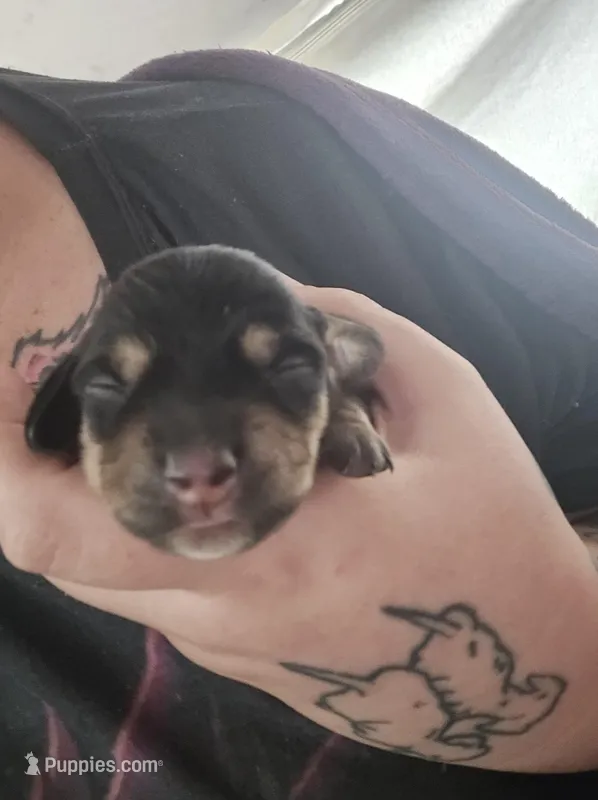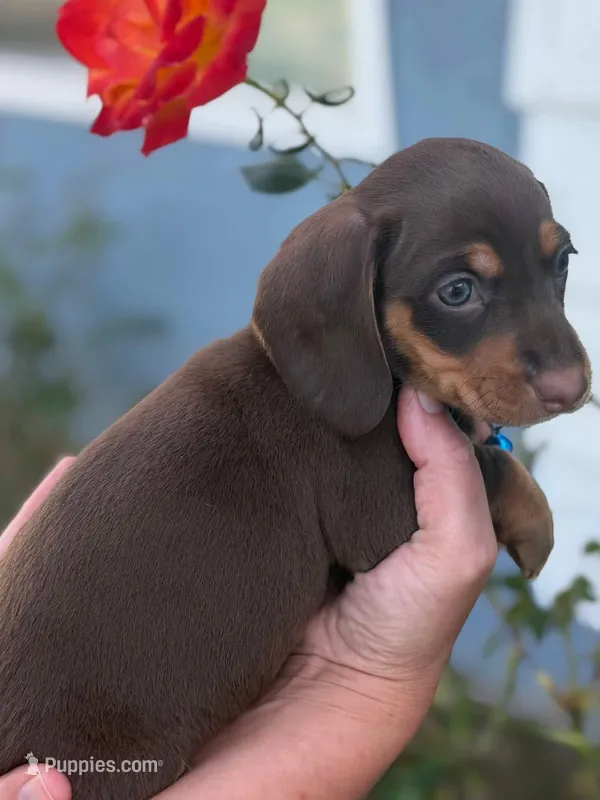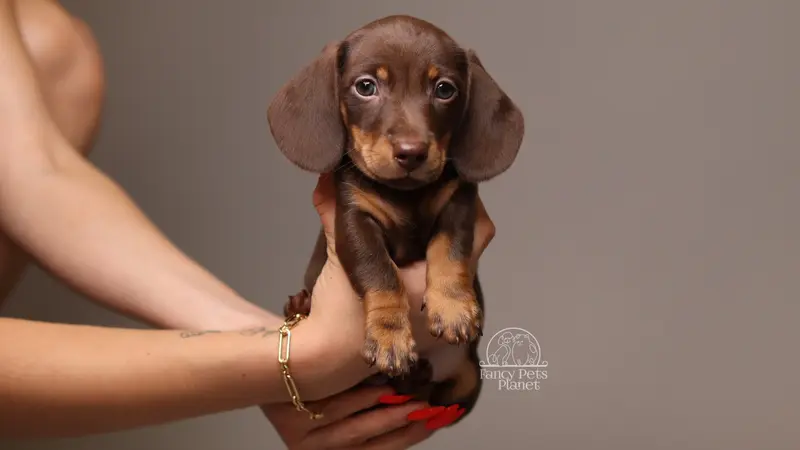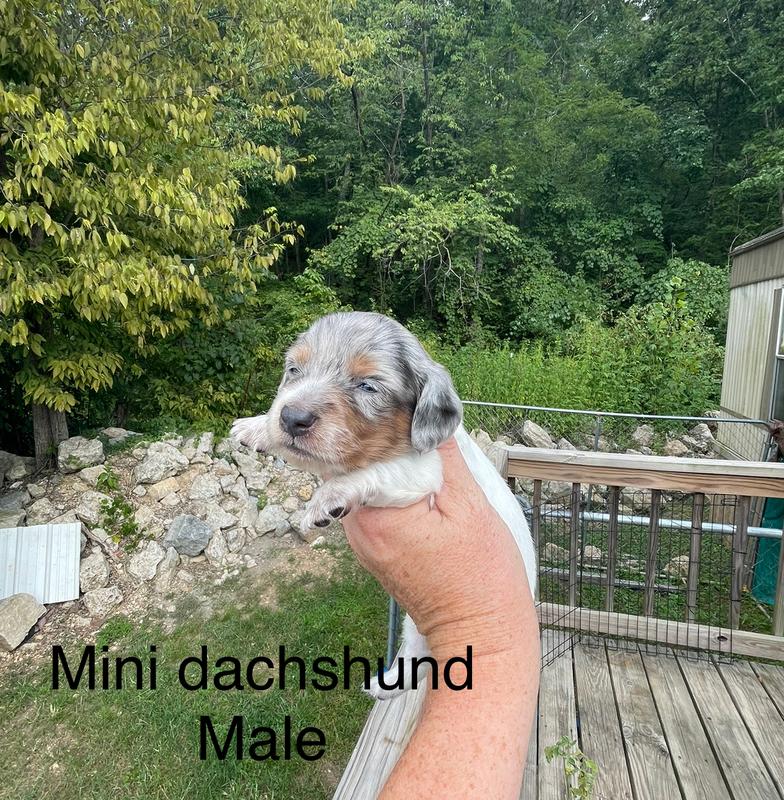Miniature Dachshund
Breed Group: toy
"Like a Dachshund, but shrunken."
Breed Profile
The Dachshund (pronounced dak-sund; also known as a ‘Teckel’) originated in Germany in the sixteenth century. They were bred and trained to chase down prey, such as a badger (Dachshund means ‘Badger Dog’) or fox, enter its burrow, kill it, and retrieve it.
Behavior
Miniature Dachshunds are energetic, brave, intelligent and independent. They are quite happy, even clownish, and can behave mischievously on occasion. The Miniature Dachshund greatly enjoys interacting with humans and is quite friendly and outgoing at home. Miniature Dachshunds make fine companions and are not typically used as hunters.
Coat
The smooth- and long-haired Miniature Dachshund should be brushed occasionally to remove dead hairs. Long-haired Miniature Dachshunds are prone to tangles, so they should be groomed more often. The coat of the wire-haired Miniature Dachshund should be plucked twice a year. Miniature Dachshunds live 12-15 years.
Lifestyle
The Miniature Dachshund is somewhat reserved around strangers and may bark at them, but forms a strong bond with family. It can be too courageous around larger dogs. Miniature Dachshunds are bold and outgoing, enjoying attention and frequently seeking adventure. They get along well with known children but may behave aggressively towards unknown children. Wired-haired Miniature Dachshunds tend to be livelier and more outgoing then smooth-hairs. Miniature Dachshunds are more reserved than the standard breed.
Activity
The Miniature Dachshund needs a small amount of exercise; medium length walks or a fair amount of play in the yard should be sufficient. Miniature Dachshunds may tire easily so exercise should be spaced out throughout the day. Miniature Dachshunds can live comfortably in an apartment, but it is best if they get an occasional view of the wild. Frequent jumping and running should not be allowed as it may cause back problems.
Characteristics
Space Needs
Activity Needs
Intelligence
Playfulness
Grooming Needs
Trainability
Watch Ability
Dog-friendliness
Child-friendliness



